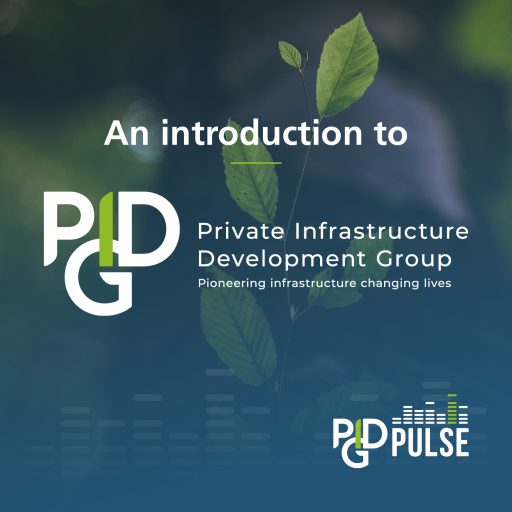
#1 Introduction to PIDG
Through affordable and sustainable infrastructure projects, the Private Infrastructure Development Group has opened up vast opportunities for economic growth in some of the world’s poorest countries, changing the lives of millions.
Leading the way in conscious investment, PIDG works to serve the communities of Sub-Saharan Africa and South & Southeast Asia. Over the course of this podcast series we’ll be examining its groundbreaking work in areas including gender diversity, health and safety, and renewable energy. In this episode we meet the CEO of PIDG, Philippe Valahu, who gives us an introduction to the company, exploring the scale of the issues it’s trying to address, and the positive impact it’s had over the last 20 years.
Related content
Latest Episodes

#24 What ‘Impact’ Really Means – And How To Plan and Measure It
What does the word ‘impact’ really mean? Measuring impact in all its forms is central to how PIDG works with partners and local communities to enable long-lasting, meaningful change.

#23 World Day for Safety and Health at Work – The Drivers of Business Success
Good Health and safety performance requires a positive health and safety culture. This is not a nice-to-have - it’s about protecting and saving lives, making projects sustainable and delivering long-term value to your employees and customers. Yet we are still seeing a lack of consideration being given to the importance of Health and safety.

#22 Earth Day – Sustainable Solutions for a Greener Future
As climate change continues to disrupt ecosystems, economies, and communities, this Earth Day we know that sustainable solutions are more important than ever. At PIDG, we believe achieving a cleaner, greener future isn’t just about protecting nature - we must also empower people with the tools to thrive sustainably.

#21 International Women’s Day Special: The Urgent Need To Accelerate Action
This is an International Women’s Day special of PIDG Pulse.